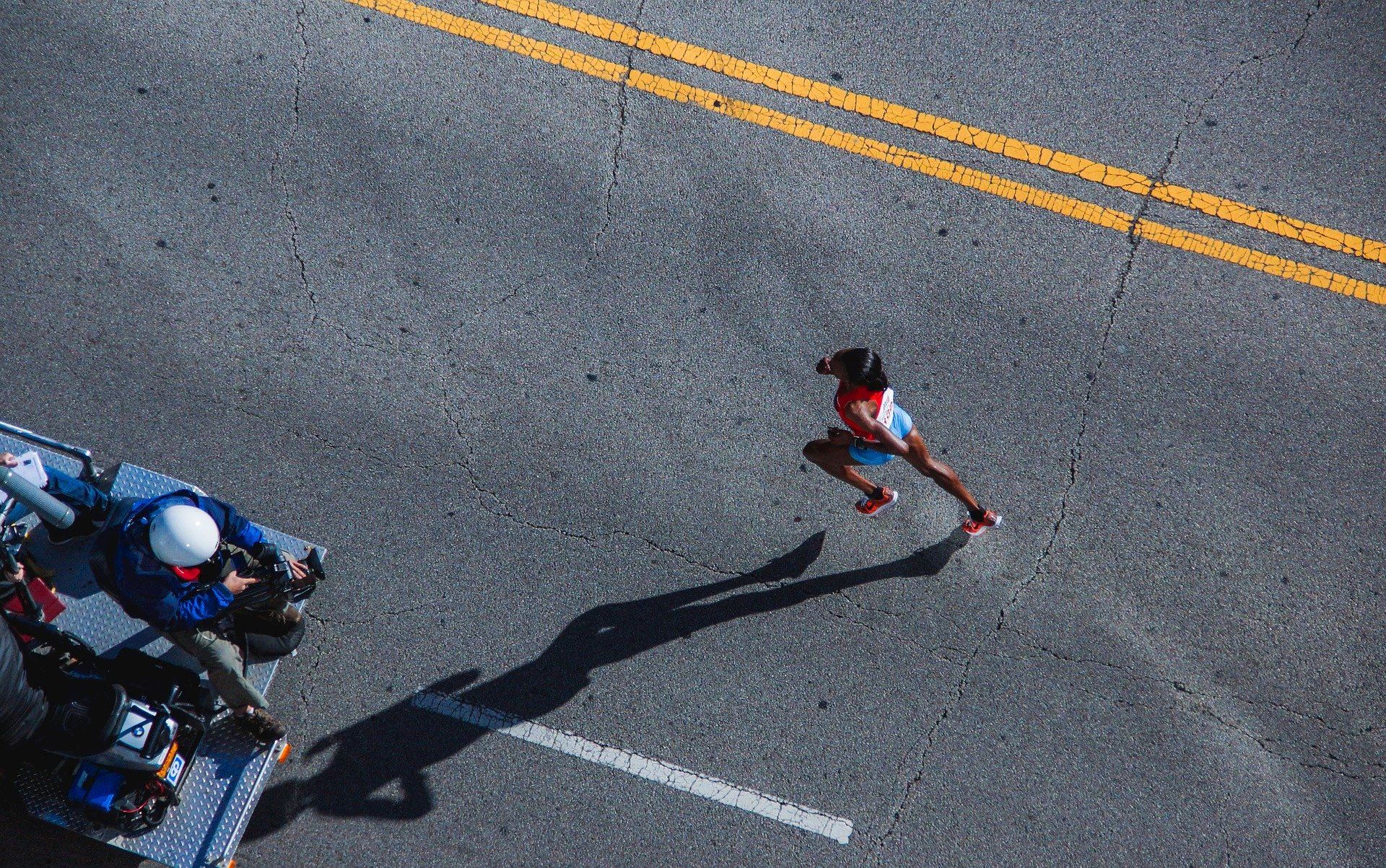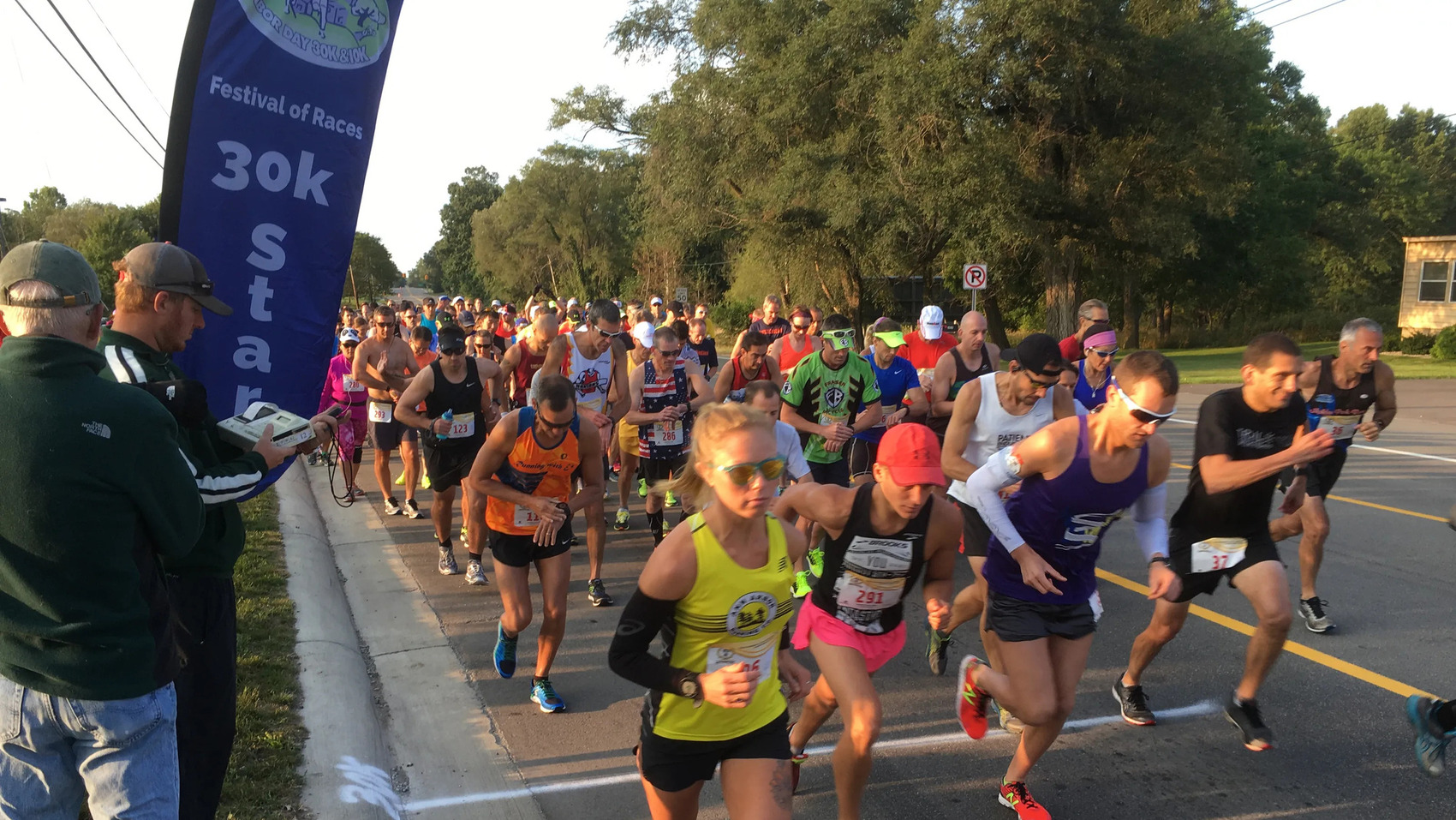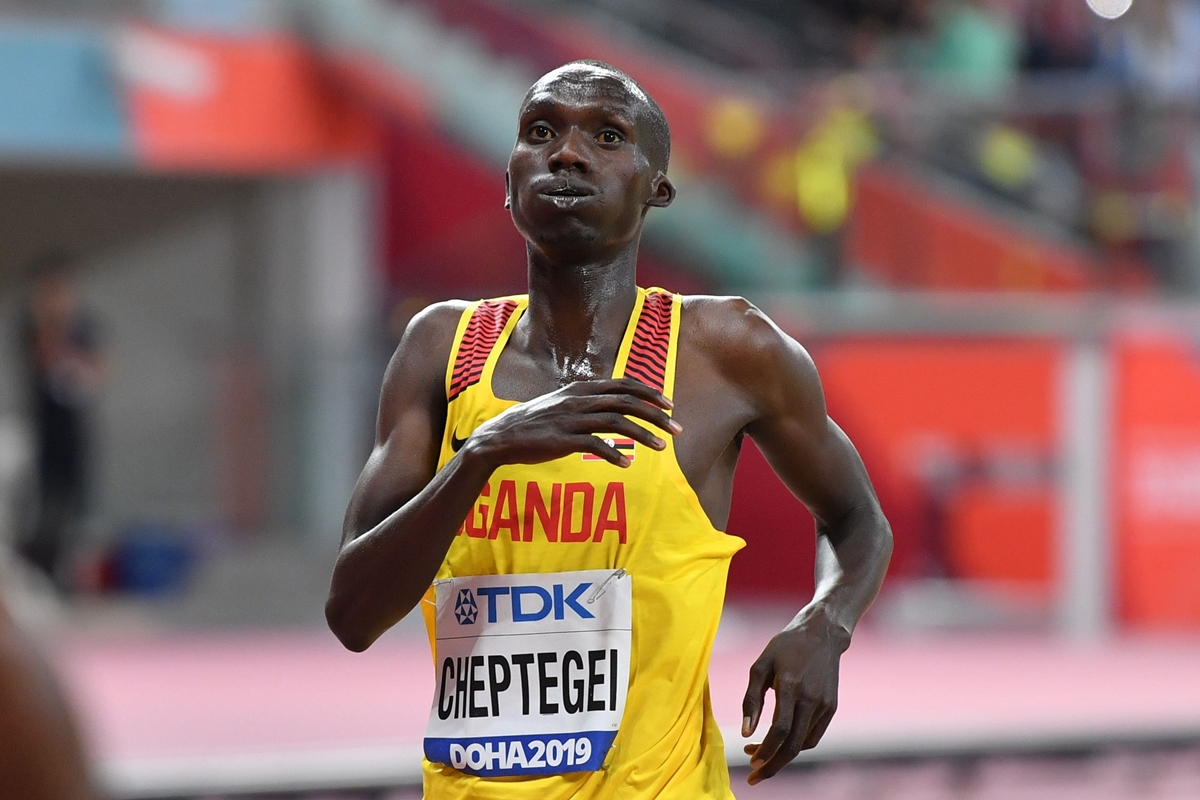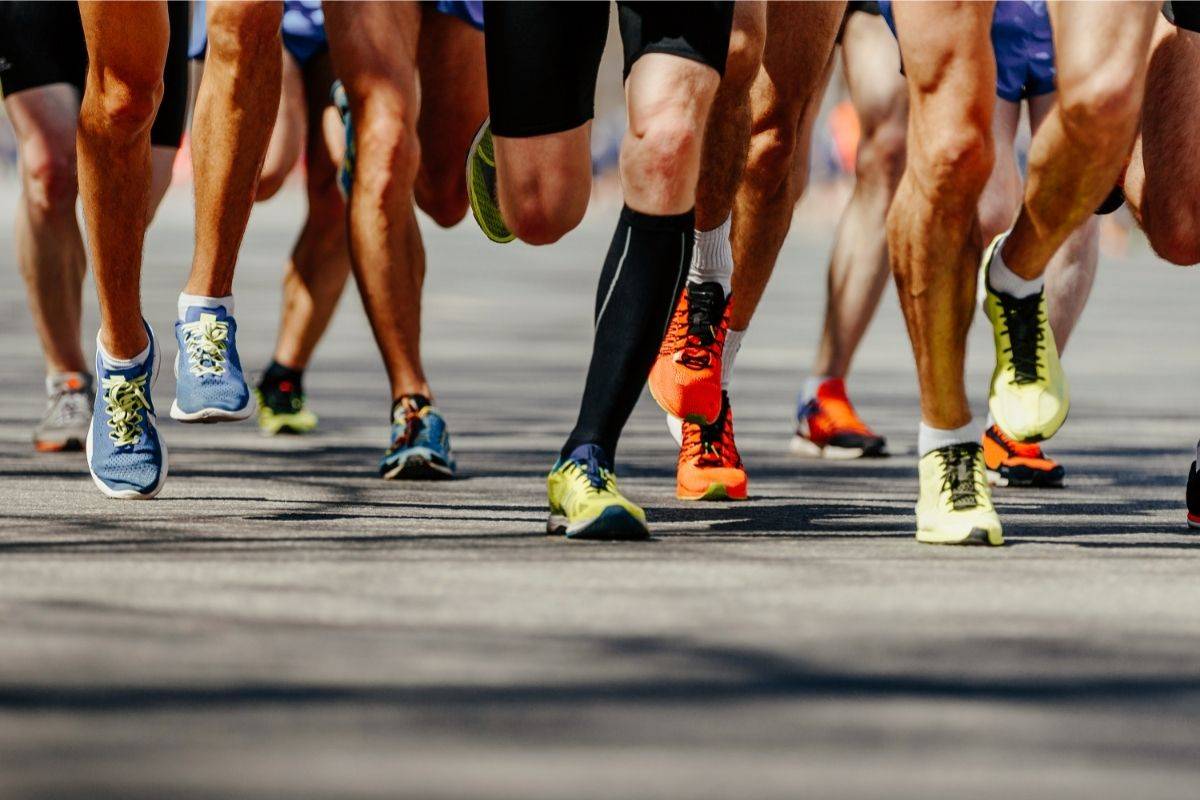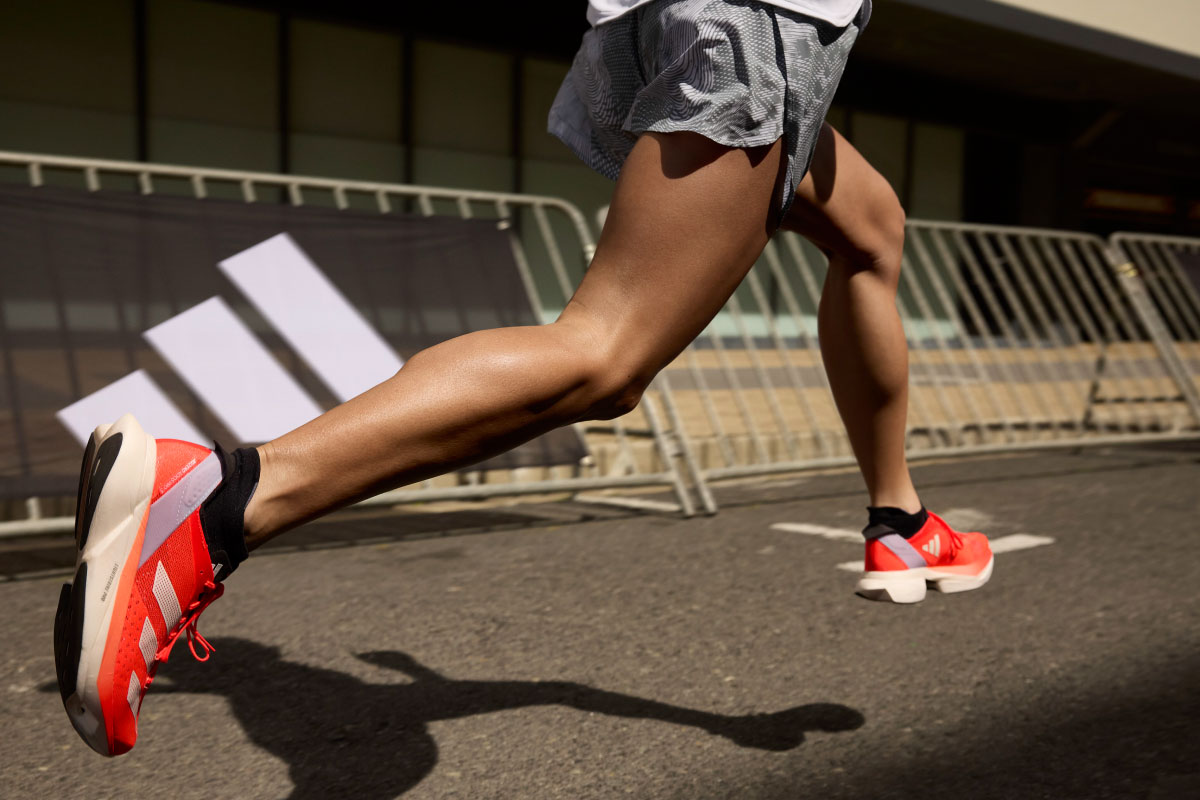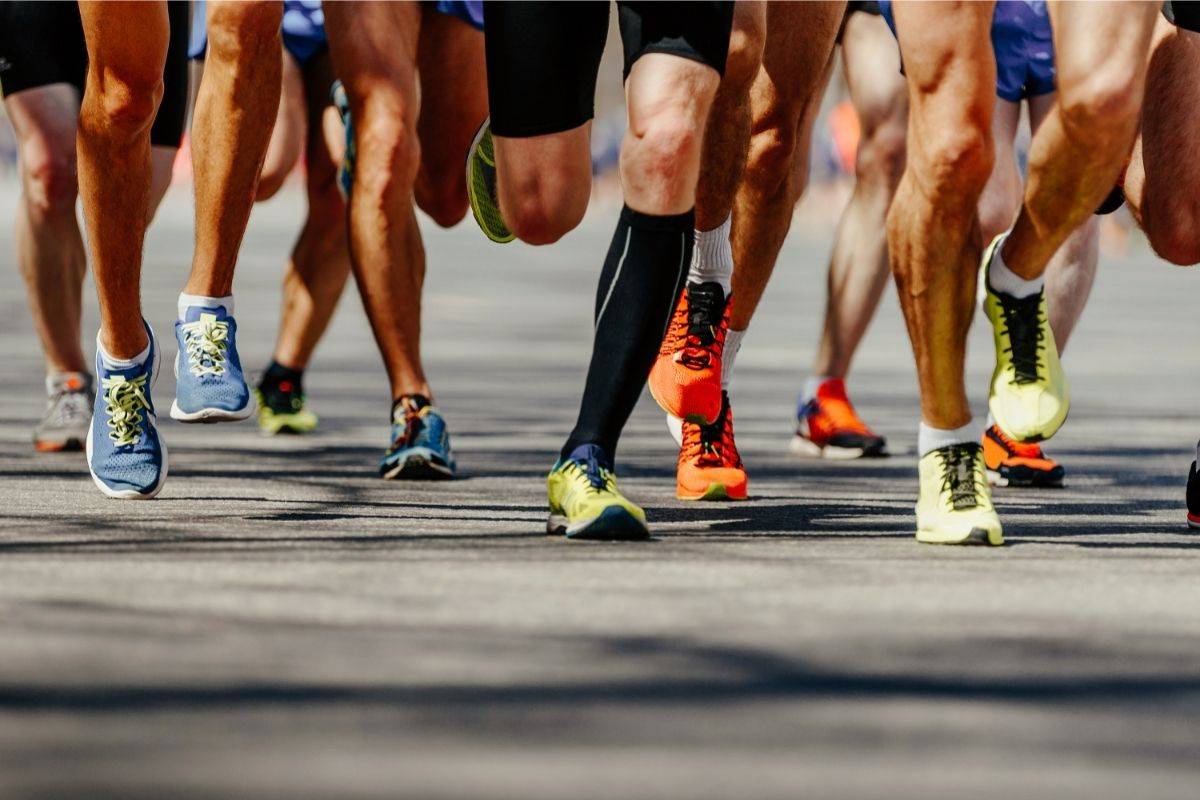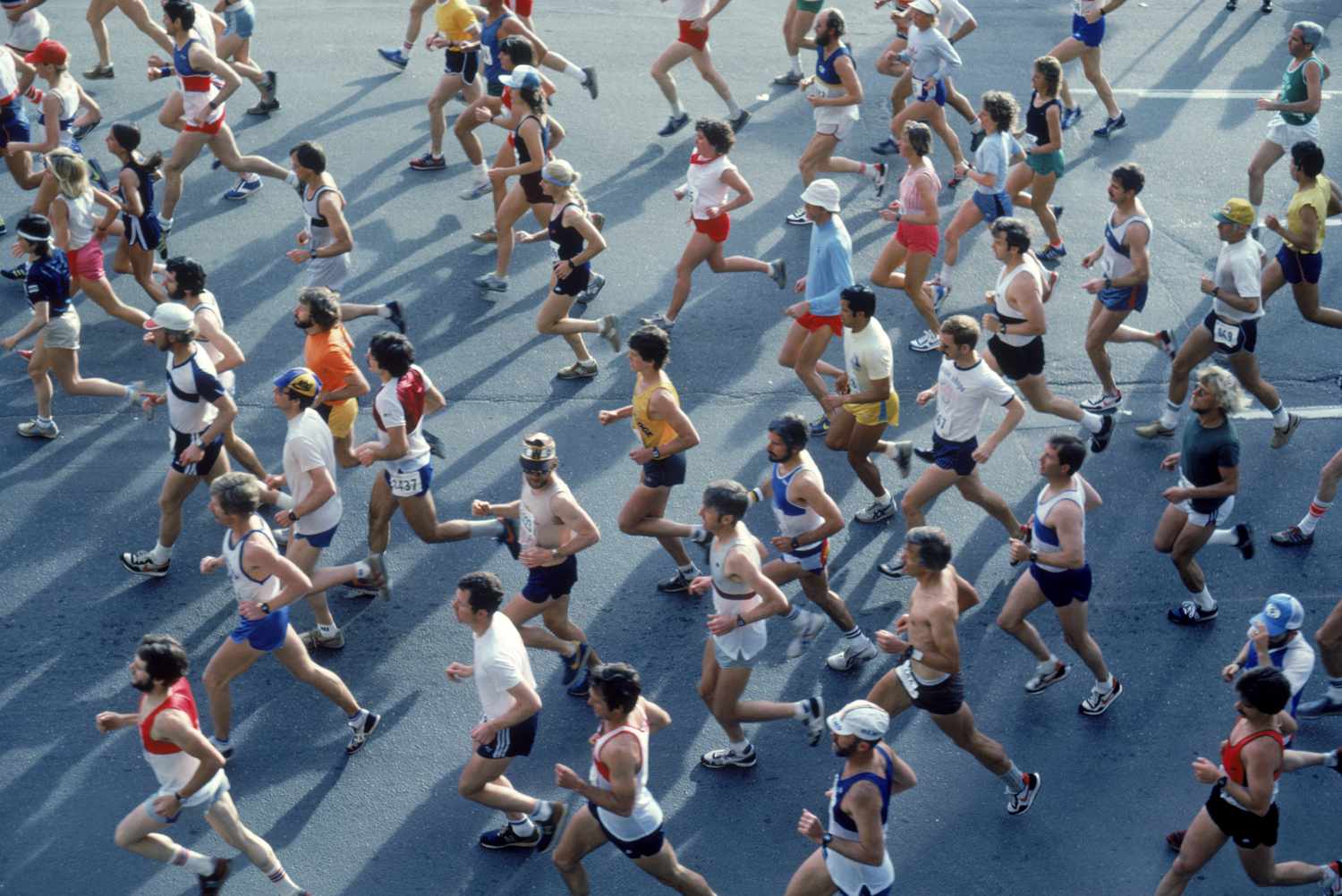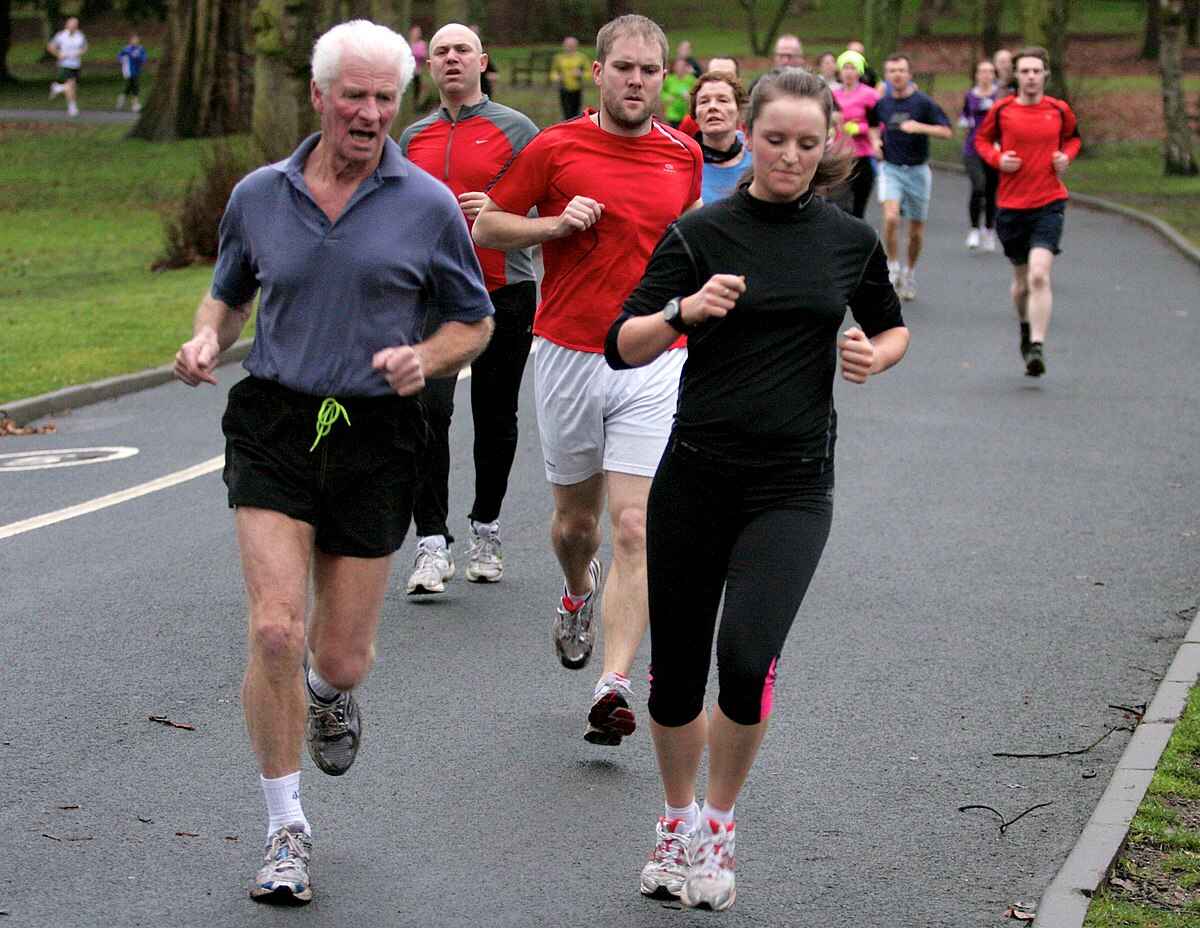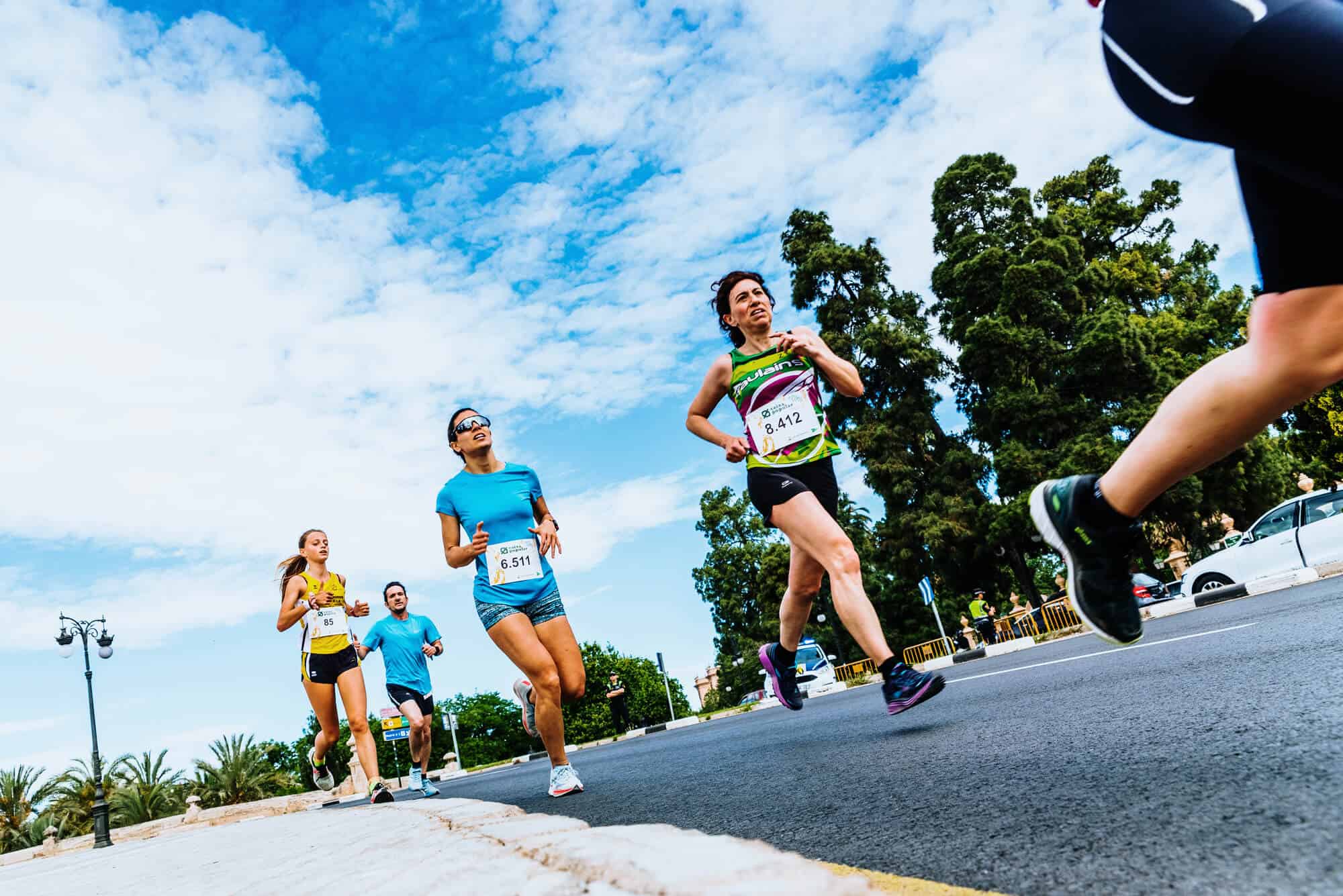

Featured
How Long Is A 5K Marathon In Miles
Modified: August 21, 2023
Featured: Discover how long a 5K marathon is in miles and get all the information you need to participate in this popular running event.
Introduction
Welcome to the world of running, where endurance, determination, and the thrill of crossing the finish line converge. If you’re a beginner looking to dip your toes into the world of marathons, you may have come across the term “5K marathon.” But what exactly does it entail? How long is a 5K marathon in miles?
A 5K marathon refers to a race that covers a distance of 5 kilometers, which is equivalent to 3.1 miles. While it may seem daunting, the 5K marathon is actually an excellent starting point for those new to running or looking to improve their fitness level.
Now you might be wondering, why are marathons measured in kilometers and not miles? Well, this can be attributed to the international standardization of races. Kilometers are used worldwide, while miles are primarily used in the United States and a few other countries. So, if you’re participating in an international race, chances are it will be measured in kilometers.
The 5K marathon distance offers an exciting challenge and the opportunity to push yourself beyond your limits. Whether you’re aiming for a new personal best or simply want to experience the exhilaration of completing a race, the 5K marathon is a great option for runners of all levels.
In this article, we will delve deeper into understanding the conversion from 5K to miles and explore the benefits of running a 5K marathon. We’ll also provide some helpful tips for training so you can prepare yourself for the big day. So, let’s lace up our running shoes and hit the pavement!
What is a 5K Marathon?
Before diving into the specifics of a 5K marathon, let’s first understand what a marathon is in general. A marathon is a long-distance running race with an official distance of 42.195 kilometers or 26.2 miles. It is a test of endurance and a true testament to the human spirit.
Now, a 5K marathon is a shorter version of the traditional marathon, covering a distance of 5 kilometers or 3.1 miles. This distance is ideal for beginners or those who prefer shorter races. It’s a popular choice among recreational runners and can also serve as a stepping stone to longer races like half marathons or full marathons.
The beauty of a 5K marathon lies in its accessibility. Compared to longer races, the training time required to prepare for a 5K is relatively shorter, allowing individuals to participate with fewer time commitments. Many running events offer 5K races as part of their program, making it a great opportunity to engage with the running community.
During a 5K marathon, participants can expect to encounter a variety of terrains, including roads, trails, or a combination of both. They may also navigate through different types of landscapes, such as urban areas, parks, or scenic routes. The atmosphere is often filled with excitement, camaraderie, and the support of cheering spectators.
5K marathons are not just limited to professional or elite athletes; they are inclusive and encourage participation from individuals of all ages and fitness levels. Whether you’re a seasoned runner aiming to beat your personal record or someone who is new to running and eager to achieve a personal milestone, the 5K marathon offers a fulfilling and rewarding experience.
Furthermore, 5K marathons are often associated with charitable causes or fundraising efforts. Many events use these races as a platform to raise awareness and support for various organizations and initiatives. This adds an element of purpose and meaning to the race, giving participants a chance to contribute to the greater good while pursuing their own personal goals.
In essence, a 5K marathon is a shorter version of the traditional marathon, covering a distance of 5 kilometers or 3.1 miles. It is a popular choice among runners of all levels due to its accessibility, inclusive nature, and the opportunity to engage with the running community. So, whether you’re a beginner or a seasoned runner, a 5K marathon is a fantastic way to challenge yourself, experience the thrill of a race, and make a positive impact.
Converting 5K to Miles
For those accustomed to measuring distances in miles, understanding the conversion from 5K to miles is essential to grasp the length of a 5K marathon. As mentioned earlier, a 5K marathon covers a distance of 5 kilometers. Now, let’s break it down and convert it to miles.
One kilometer is equivalent to approximately 0.62137 miles. To convert 5 kilometers to miles, we simply multiply 5 by 0.62137. The result is approximately 3.1 miles, which is the distance covered in a 5K marathon.
Understanding the conversion from 5K to miles can be helpful not only in terms of visualizing the distance but also when it comes to setting and achieving running goals. It allows you to have a better sense of how far you will be running during training and on race day.
Additionally, being mindful of the conversion can help when comparing your results with races that use miles as their unit of measurement. It allows you to have a clearer understanding of your pace and performance in relation to races that are primarily measured in miles.
It’s worth noting that in some countries, such as the United States and a few others, the mile is the standard unit of measurement for road races. In such cases, 5K races may be advertised as approximately 3.1 miles. However, it’s always a good idea to confirm the exact distance with the race organizers or through official race documentation.
So, the next time you come across a 5K marathon, remember that it covers a distance of approximately 3.1 miles. Keep this conversion in mind to better visualize the distance, set running goals, and compare your performance with races that primarily use miles as their unit of measurement.
Now that we understand the conversion, let’s dive deeper into what the distance of a 5K marathon entails and explore the journey of running this exciting race.
Understanding the Distance
Now that we know a 5K marathon is equivalent to 3.1 miles, it’s important to gain a deeper understanding of what this distance entails. While it may vary slightly depending on the race course and terrain, understanding the average time it takes to complete a 5K marathon can help you set realistic goals and pace yourself during the race.
The time it takes to complete a 5K marathon can vary greatly depending on factors such as individual fitness level, age, experience, and running conditions. For seasoned runners, finishing a 5K marathon can range from a speedy 15 to 20 minutes for top athletes to anywhere from 30 to 40 minutes for recreational runners.
For beginners or those new to running, completing a 5K marathon may take a bit longer, typically ranging from 45 to 60 minutes. However, it’s important to remember that the goal is not solely to finish with a specific time in mind, but rather to enjoy the experience and challenge yourself.
It’s also worth considering the pace at which you will be running during a 5K marathon. A common pace for a 5K is around 9 to 12 minutes per mile, but this can vary based on personal ability, goals, and fitness level. It’s important to find a pace that is comfortable for you and allows you to maintain a steady rhythm throughout the race.
During a 5K marathon, you will face different terrains and potentially encounter inclines and declines along the course. Being mentally and physically prepared for these variations is crucial to maintaining a consistent pace and completing the race successfully.
It’s also important to listen to your body and take breaks or slow down if necessary. It’s completely normal to walk during a 5K marathon, especially if you’re new to running. As long as you keep moving forward and stay motivated, you’re doing great!
Completing a 5K marathon is an achievement regardless of the time it takes. It’s about challenging yourself, staying determined, and enjoying the process. Embrace the journey, experience the joy of crossing the finish line, and celebrate your accomplishment!
Now that we have a better understanding of the distance, let’s explore the benefits of running a 5K marathon and why it’s a fantastic race for both beginners and experienced runners alike.
Benefits of Running a 5K Marathon
Participating in a 5K marathon offers numerous benefits that extend beyond the physical aspects of running. Whether you’re a seasoned runner or a beginner, here are some of the advantages you can expect to enjoy when you take on the challenge of a 5K marathon.
- Improved cardiovascular fitness: Running a 5K marathon regularly can lead to improved heart health and increased cardiovascular endurance. It strengthens your heart, lungs, and circulatory system, reducing the risk of cardiovascular diseases.
- Weight management: Engaging in regular physical activity like running a 5K marathon can help with weight management and maintaining a healthy body composition. Running burns calories and contributes to building lean muscle mass.
- Boosted mental well-being: Running has been linked to improved mental health and overall well-being. The sense of accomplishment after completing a 5K marathon, combined with the release of endorphins, can boost your mood, reduce stress, and enhance mental clarity.
- Increased social connections: Participating in a 5K marathon provides an opportunity to connect with like-minded individuals who share a passion for running. You can join local running groups, make new friends, and enjoy the camaraderie that comes with being part of the running community.
- Setting and achieving goals: Training for and completing a 5K marathon allows you to set attainable goals and experience the satisfaction of achieving them. It can help foster a sense of personal growth, self-discipline, and perseverance.
- Supporting charitable causes: Many 5K marathons are organized in support of charitable causes and fundraising initiatives. By participating, you can make a meaningful impact on the lives of others and contribute to causes close to your heart.
- Stress relief: Running has long been recognized as an effective way to reduce stress and anxiety. The rhythmic motion of running, combined with being outdoors and connecting with nature, can provide a much-needed break from the demands and pressures of daily life.
- Improving discipline and time management skills: Training for a 5K marathon requires commitment and discipline. It teaches you to prioritize your time effectively, develop a consistent training routine, and manage your schedule efficiently.
- Boosting self-confidence: Completing a 5K marathon can give you a sense of accomplishment and enhance your self-confidence. It demonstrates that you have the ability to overcome challenges and achieve your goals, both on and off the racecourse.
These are just a few of the many benefits that come with running a 5K marathon. Whether you’re aiming to improve your physical fitness, seek mental rejuvenation, connect with others, or achieve personal milestones, the 5K marathon offers a fulfilling and rewarding experience.
Now that we understand the benefits, let’s explore some valuable tips for training to ensure you’re fully prepared for your 5K marathon journey.
Tips for Training for a 5K Marathon
Training for a 5K marathon requires dedication, consistency, and a well-structured plan. Whether you’re a beginner or looking to improve your performance, here are some valuable tips to help you prepare for your 5K marathon:
- Start gradually: If you’re new to running or haven’t been active for a while, it’s important to start gradually. Begin with a mix of walking and running, gradually increasing your running time and reducing your walking intervals as you build endurance.
- Follow a training schedule: Create a training schedule that includes a mix of running and cross-training days. Gradually increase your mileage and incorporate speed workouts, interval training, and long runs to build strength and stamina.
- Listen to your body: Pay attention to any signs of pain or discomfort. Rest when needed, and seek professional advice if necessary. Incorporate rest days into your training schedule to allow your body to recover and prevent overuse injuries.
- Warm up and cool down: Prior to each run, warm up with dynamic stretches to prepare your muscles and joints. After each run, cool down with static stretches to improve flexibility and reduce muscle soreness.
- Gradually increase distance and intensity: As your fitness improves, gradually increase your running distance and intensity. Incorporate tempo runs, hill sprints, and longer runs into your training to challenge yourself and improve your performance.
- Stay consistent: Consistency is key in training for a 5K marathon. Stick to your training schedule and make running a regular part of your routine. Aim for at least three to four runs per week to build endurance and maintain progress.
- Proper footwear and attire: Invest in a good pair of running shoes that provide proper support, fit well, and are suitable for your running style. Dress in moisture-wicking and breathable clothing to stay comfortable and reduce the risk of chafing.
- Stay hydrated and fuel properly: Hydration is crucial for optimal performance. Drink water before, during, and after your runs. Additionally, fuel your body with a balanced diet that includes carbohydrates, proteins, and healthy fats to support your training and recovery.
- Join a running group or find a training partner: Training with others can provide motivation, accountability, and an added element of fun. Join a local running group or find a training partner who shares similar goals and can support you along your training journey.
- Mental preparation: Mental preparation is just as important as physical training. Visualize yourself crossing the finish line and overcoming any obstacles. Practice positive self-talk and stay focused on your goals during training and on race day.
Remember, everyone’s training journey is unique, so listen to your body, stay consistent, and be patient with yourself. By following these tips, you’ll be well on your way to preparing for a successful 5K marathon.
Now that you’re armed with valuable training tips, it’s time to tie your shoelaces and embark on your 5K marathon adventure. Best of luck, and enjoy every step of the journey!
Conclusion
Congratulations! You’ve reached the end of this comprehensive guide to understanding and training for a 5K marathon. By now, you should have a clear understanding of what a 5K marathon entails, how to convert the distance from kilometers to miles, and the benefits of participating in this race.
A 5K marathon is a fantastic starting point for beginners and a challenging race for experienced runners. It offers numerous benefits, ranging from improved cardiovascular fitness and weight management to boosted mental well-being and increased social connections.
To prepare for a 5K marathon, follow the training tips provided, including starting gradually, following a training schedule, listening to your body, and staying consistent. Remember to properly warm up and cool down, wear appropriate gear, and fuel your body with a balanced diet.
Training for a 5K marathon is not just about physical fitness but also about setting and achieving goals, developing discipline, and enjoying the journey. Embrace the challenges, celebrate your progress, and remember to have fun along the way.
Whether you’re aiming for a personal best, supporting a charitable cause, or simply seeking to experience the thrill of crossing the finish line, a 5K marathon offers a fulfilling and rewarding experience.
So, lace up your running shoes, hit the pavement, and get ready to take on the 5K marathon. You’re capable of more than you think, and with determination and perseverance, you’ll conquer the distance and achieve your goals.
Good luck, and most importantly, enjoy the journey!
